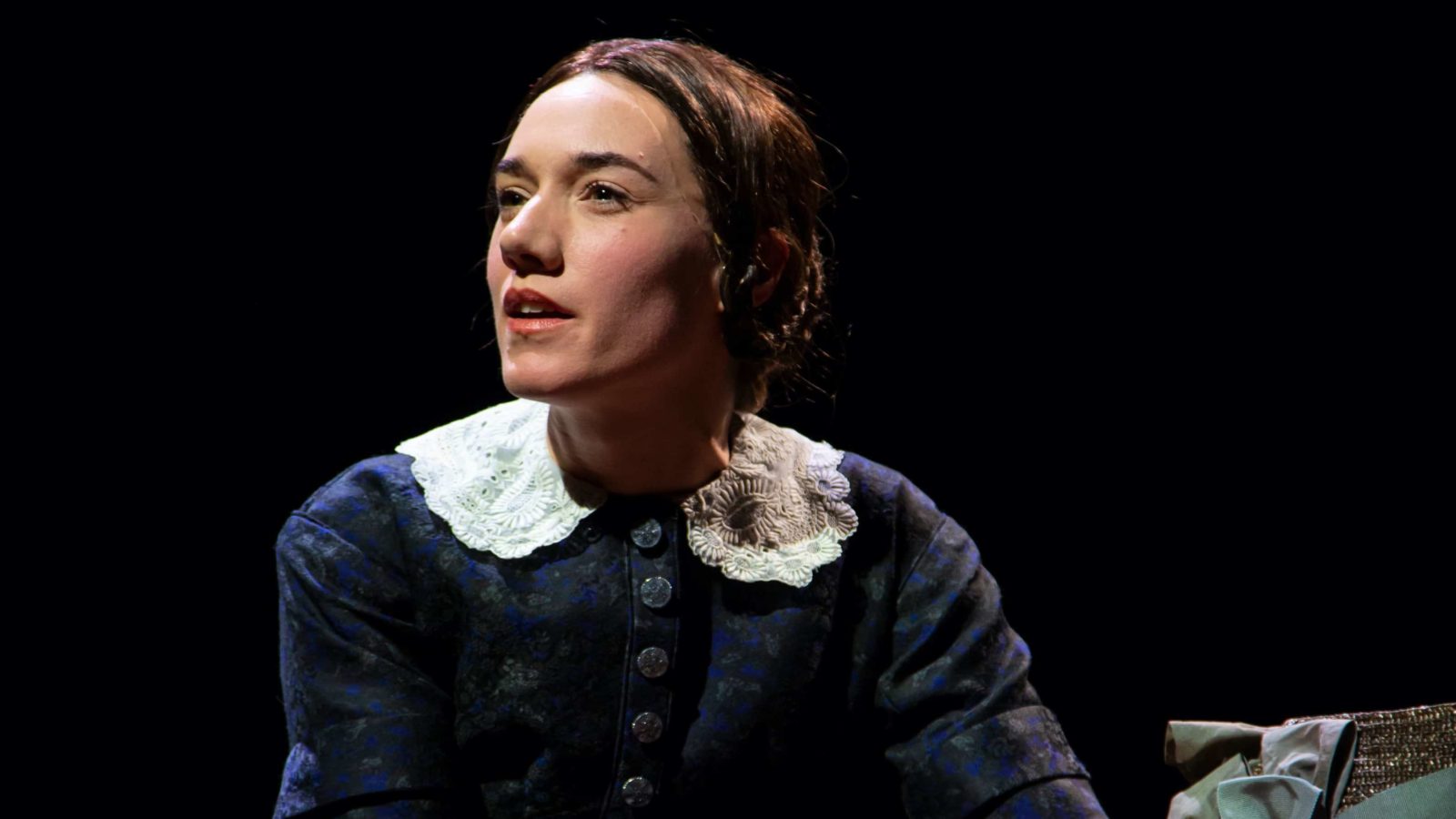A small, dark-haired young woman is leaning out a window alone.
She wants life and companionship. She aches for an active mind and body. She tells herself stories about magical beings in the blackthorn trees.
Millions are condemned to a stiller doom than mine, she says, and millions are in silent revolt against their lot.
Jane Eyre may be the first woman in a novel to tell her own story.
When Charlotte Brontë wrote her in 1847, a book in the first person that opened readers to the mind of a girl growing into a woman was a revolution, says Elizabeth Williamson, associate artistic director at the Hartford Stage.
Williamson brings a new adaptation to life, a world premiere.
Generations have known Jane as the governess at Thornfield Hall who meets Mr. Rochester, an isolated man with a weight in his past. She tells a mystery and a love story.
But Jane far is more than a gothic heroine, Williamson said by phone as the play prepared for opening night. Jane is a rebel imagining a better world.
“She is an extraordinary figure,” Williamson said.
She knows no other major novel with a character like this.
“(Jane) insists on her own right to exist as a human being,” she said, “to have her own needs, to make her own way.”
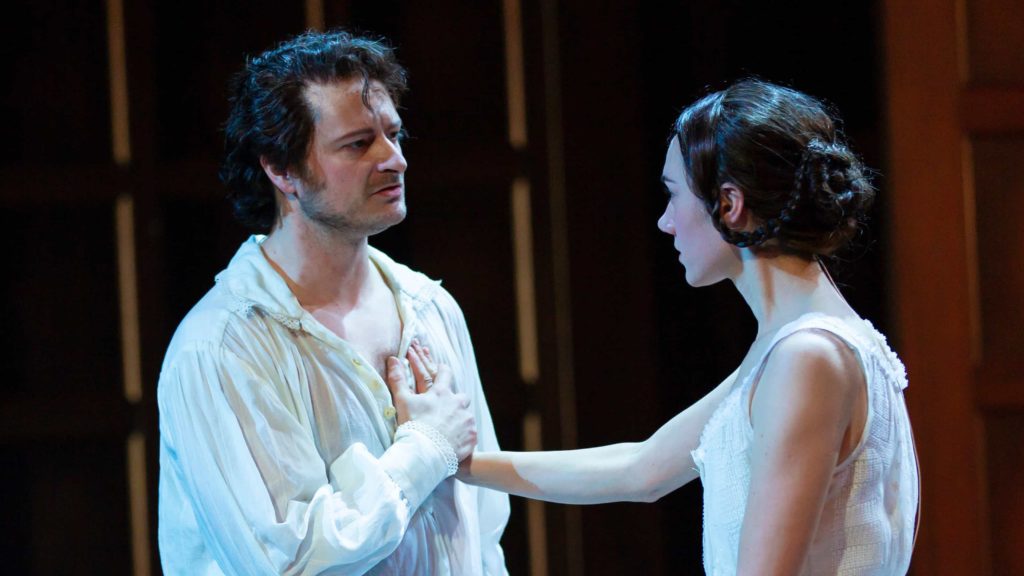
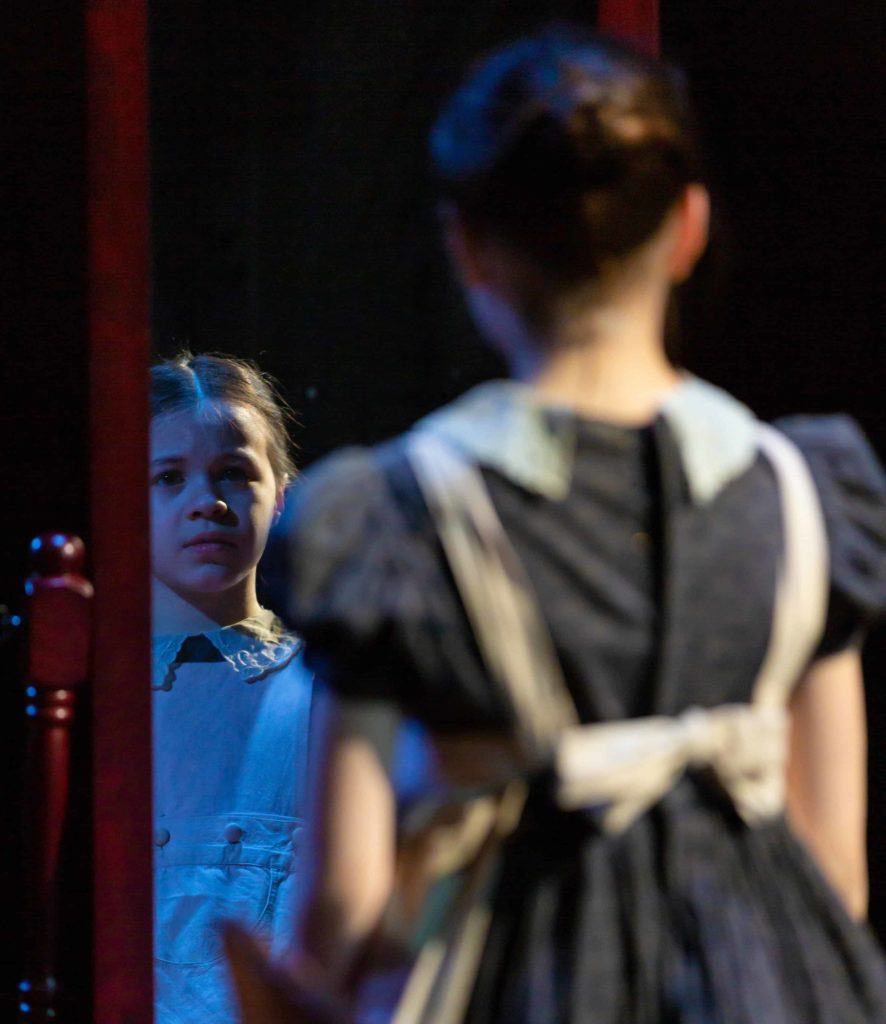
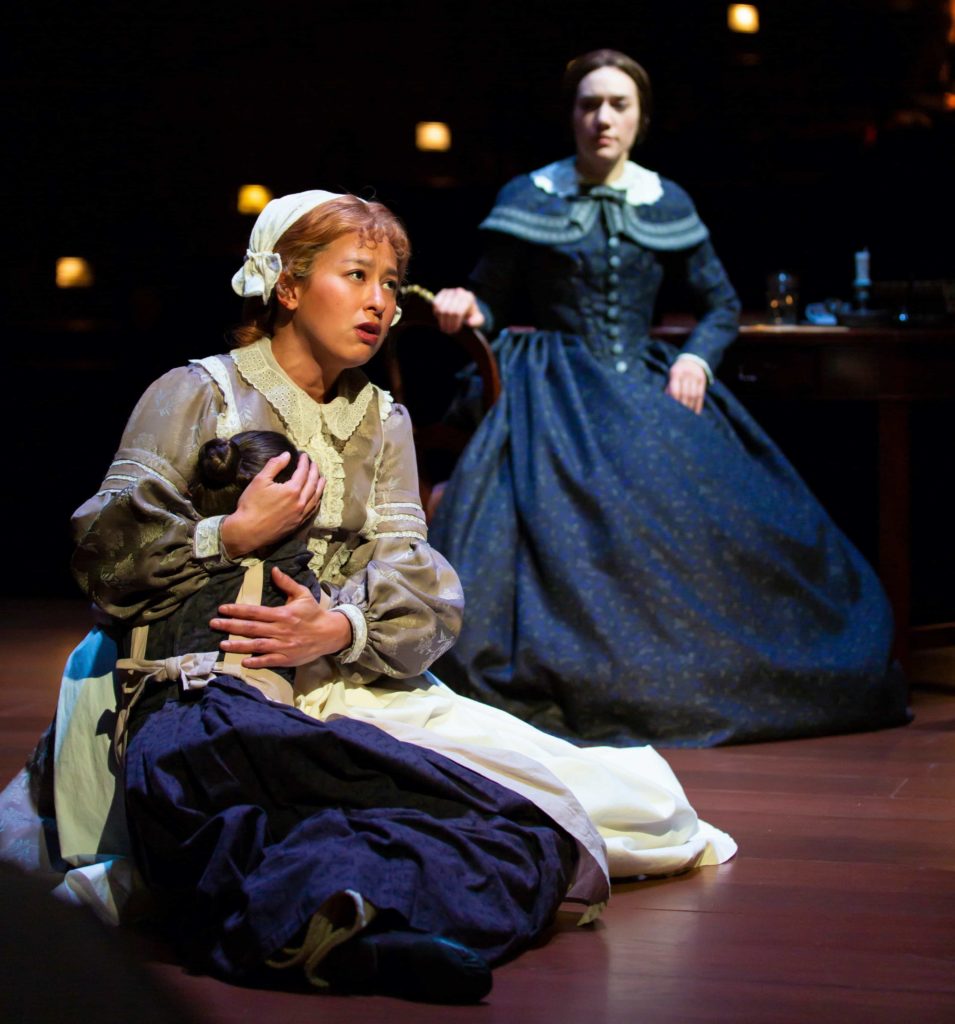
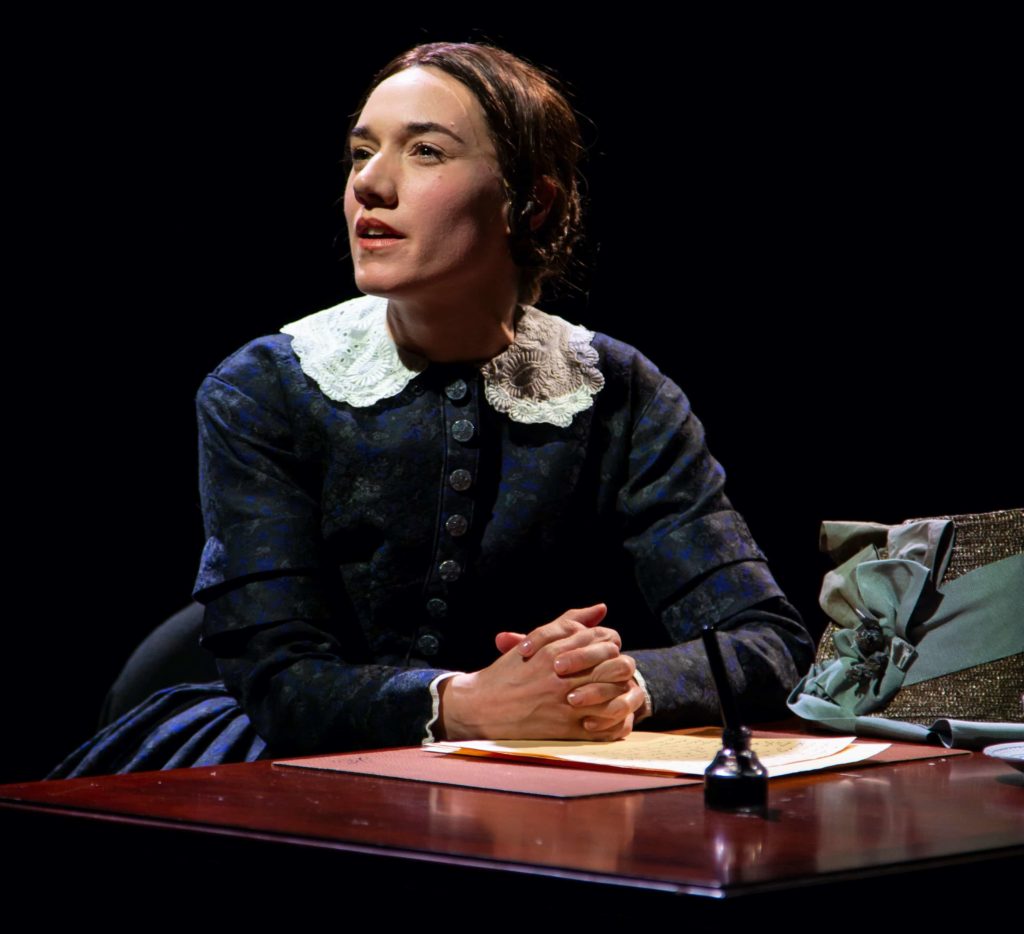
Jane Eyre has been one of Williamson’s favorite novels for years. She first read it in her teens, and she has seen many adaptations.
“They were good,” she said, “but they didn’t get inside her voice.”
Jane talks to the reader intimately.
“She says ‘Dear reader, come into this with me,'” said Marie-France Arcilla, who plays three of Jane’s companions and rivals. In a cast of eight, many actors in this performance are doubling and tripling roles.
Arcilla loves this adaptation’s faithfulness to the book. It has shown her depths in Jane’s character, she says, and in Brontë’s world that she has not seen before.
“It’s amazing,” she said, “… how modern she is. She expresses what she wants, her independence, her freedom — the things we want our daughters to learn. She is butting against restrictions. I’m saddened we’re still having these conversations 200 years later.”
The play begins as Jane is leaving school at 18. With no family or friends to help her, she finds a job on her own, advertising to be a governess.
At Thornfield hall, her new employer challenges her and wakes her longings, but she feels an unexplained anguish or anger in him.
“This is a story built around a secret,” Williamson said. “… Jane does not know what he is coping with.”
Like Jane, he is an imaginative outsider, and she finds him both genial and rigid. So she draws close to him and draws away. All her life, she has refused to be controlled. She answers his first question in their first real conversation: I don’t think, sir, you have a right to command me.
Few women would have said so, Arcilla said.
Arcilla plays three women with three very different viewpoints. She is Bessie, the nurse who raises Jane as a poor girl in a rich household. She is Blanche, the society woman who completes with Jane for Mr. Rochester. And she is Grace Poole, a woman in Mr. Rochester’s household taking care of a severely mentally ill patient.
They are all working within the restrictions of their environment, she said. Bessie has to bow to her employers. Blanche has to marry well, and so she performs.
“She preens and giggles for her,” Arcilla said.
Jane sees that, she said, and feels disdain and sympathy at the same time. Jane sees the emptiness in the performance — and the cruelty in a man allowing it, even forcing it, from a woman he does not care about.
“We’ve seen this as a recurring theme in these last few years,” Arcilla said. “… If a man asserts himself, he’s claiming what is his. If a woman asserts herself, she’s crazy.”
Jane Eyre looks closely at exclusion and madness. In Grace Poole, Arcilla comes closest to the story’s darkest room. Grace is caring for a woman who is mad. Grace is misunderstood and misinterpreted, Arcilla said.
“I like to think she came up from nothing. She found her way to a stable job and lifestyle most people of her station wouldn’t. Maybe she began as the laundry woman at the asylum, and one day she’s asked to clean a room … then to bathe the inmates.”
She is good at what she does, and she will not let anything threaten her position. But what gives her comfort is making her a prisoner.
She has sympathy for her ward.
“I don’t pity her because she’s ill but because no one should have to live this way, locked away, denied, caged.”
At the same time, Williamson said, Mr. Rochester is trying to secure the patient’s comfort and safety.
Brontë considers mental health and illness in many ways, she said, but not in a realistic comparison of an asylum and private care. In the presence of madness, Williamson sees a metaphor for Jane’s fear of marriage, at a time when the law gave a man the right to control his wife completely — where she went, what she read, who she saw, what she did.
Jane has to trust him and risk losing her freedom, or to let him go and lose the one friend and companion she can talk with openly, with intelligence and passion.
If she marries, Williamson said, it will not be for conventional morality or fantastic romance. She has a deeper and clearer definition of love.
“She says ‘I’ve known an original mind,’” Williamson said. “I’ve known you.”
On stage …
What: Jane Eyre, a new adaptation of Charlotte Brontë’s novel by Elizabeth Williamson
Where: Hartford Stage, 50 Church St., Hartford, Conn.
When: Feb. 13 to March 14
Tuesday to Thursday at 7:30 p.m., Friday and Saturday at 8 p.m., Sunday at 2 p.m., and also matinees Feb. 22 and 26, March 7 and 14 at 2 p.m. (No show March 4 or 10-12).
Tickets: $20 to $100
Information: 860-527-5151; hartfordstage.org

